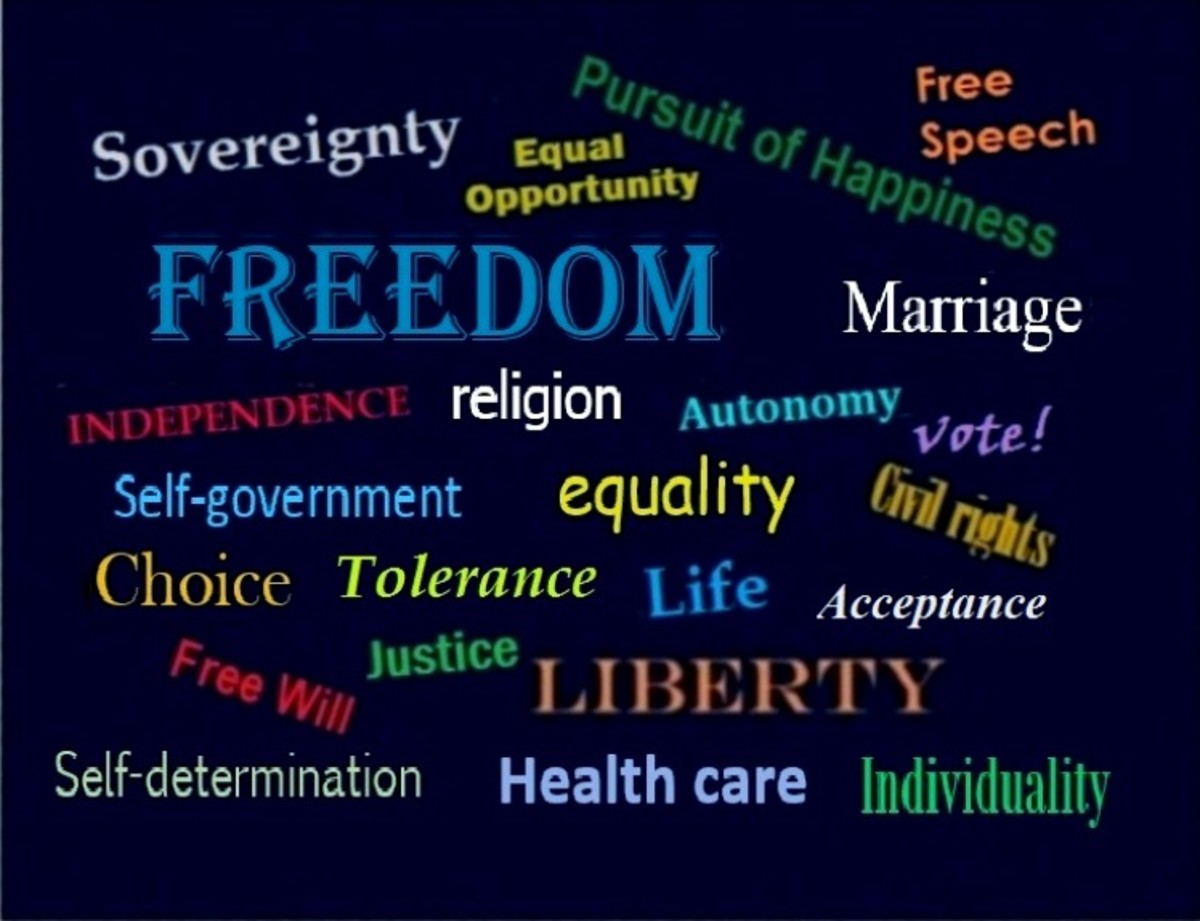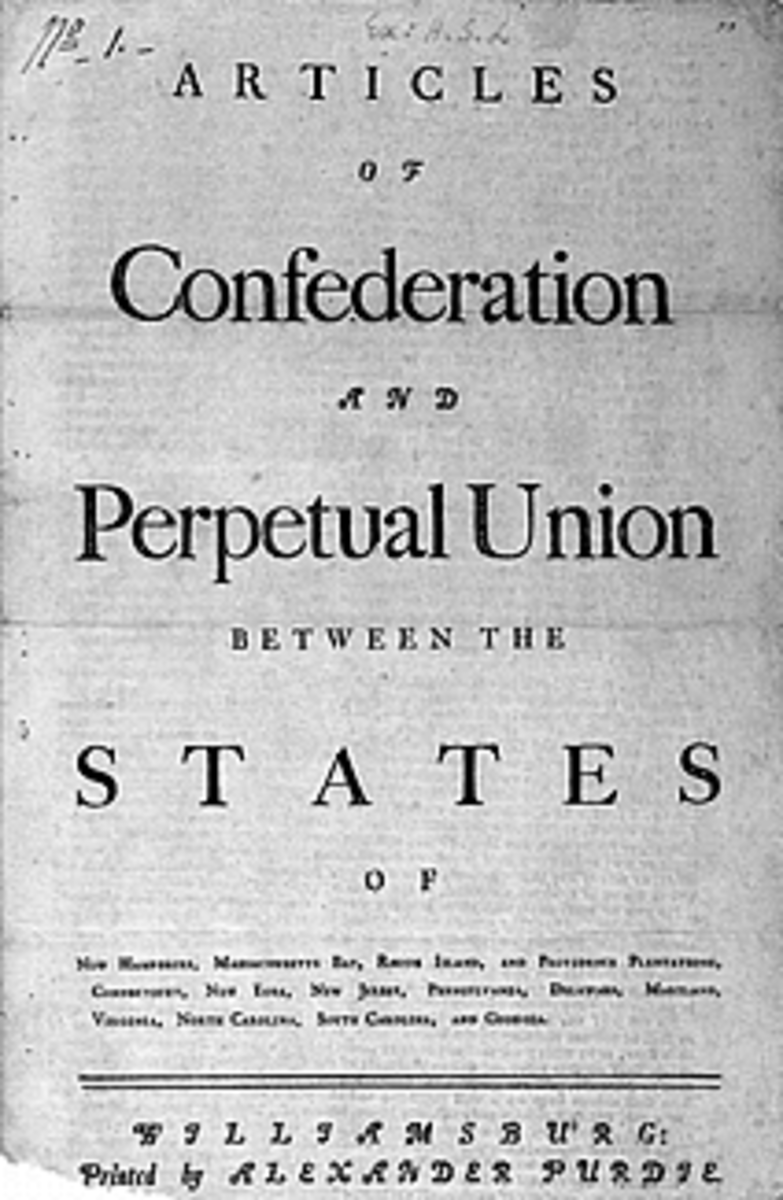Are the limitations of the federal government being violated?
Under the Constitution the federal government has specific responsibilities and authority. In Article 1, section 8 the responsibilities are defined but whether these are the only activities within which the government limits its decisions are the question. The answer is undeniably no. Our constitution is a living document and as such it has been amended twenty seven (27) times. The authority and responsibility of the federal government while not officially being added to the Constitution new responsibilities has appropriately become a federal government responsibility.
This is not a bad thing but even with the additional responsibilities which the government has taken on the key is whether the entities confine their actions/decisions within their mission for which the answer is also no. The key with the laws generated by Congress is whether the requirements in place are followed by the entire federal government. Our world is much different now than when the Constitution was first created and while there are things that have appropriately become a federal government responsibility other limitations are being ignored.
The current culture in Congress though it may be in the process of changing is that government knows best with respect to everything about our daily lives. New individuals have stepped up to the plate and are not satisfied with the current environment and activity which has been in place in Congress. Government has no legal right or responsibility to control our lives and make decisions for us that we should be making for ourselves. The present overreach of government into our personal lives is something our founding fathers never intended when the constitution was written. This needs to change.
In article 1 section 8 it identifies that Congress shall have the Power:
“To lay and collect Taxes, Duties, Imposts and Excises, to pay the Debts and provide for the common Defence and general Welfare of the United States; but all Duties, Imposts and Excises shall be uniform throughout the United States;”
The authority cited above clearly belongs to federal government but collecting taxes related to a common defense as it relates to the federal government is true. As identified above it is the responsibility and authority of Congress to pay the debts of the United States along with the general welfare. This is a great distinction but with providing for the general welfare of the United States but the question to be answered is what is meant by the general welfare of the United States.
The next responsibility in Article 1, Section 8 is to borrow money on the credit of the United States. This responsibility is alive and well as we continue to borrow money to pay for the increased spending of the federal government. It is understandable that some expenses occur that are never planned or expected such as weather related events for which the federal government assists states in the aftermath. These events are not the problem it is the budgetary process in providing funding for departments and activities which may or may not be engrained in the constitution as a federal government responsibility. One example is the Department of Education which is never mentioned or implied in the Constitution as it should be a state and local government to make decisions for their citizens. One example of this overreach is the philosophy of Common Core. This does not mean that the federal government cannot provide some input but it should not be to the extent as is currently in place.
Borrowing money to pay government expenses should be directly related to the authority and responsibilities either identified in the Constitution or have appropriately become a federal government responsibility. The next responsibility to be discussed is that of the Department of Commerce. The language is provided below:
“To regulate Commerce with foreign Nations, and among the several States, and with the Indian Tribes;”
The commerce clause of the Constitution and the activities of the department have clearly expanded from the original intent. It is understandable that the federal government have the authority to regulate commerce with foreign nations and among the several states. The state aspect is one area which for which this department has taken their authority to the extreme. There attempt or at least the proposal to classify the Internet as a public utility is way over their authority. The Internet is not owned by any one country in fact when it was developed the technology was freely given to all countries and as such does not fall within any regulation by any country. Granted some countries prevent access to certain information but this is not regulation.
The following areas identified below are well within the authority of the federal government and the actions of the government have not been in violation at least by Congress. Executive Orders that have been issued by the President with respect to naturalization rules or the waving of them are a matter that needs to be resolved.
“To establish a uniform Rule of Naturalization, and uniform Laws on the subject of Bankruptcies throughout the United States; “
“To coin Money, regulate the Value thereof, and of foreign Coin, and fix the Standard of Weights and Measures;”
“To provide for the Punishment of counterfeiting the Securities and current Coin of the United States; “
“To establish Post Offices and Post Roads;”
“To promote the Progress of Science and useful Arts, by securing for limited Times to Authors and Inventors the exclusive Right to their respective Writings and Discoveries;”
“To constitute Tribunals inferior to the Supreme Court;”
“To define and punish Piracies and Felonies committed on the high Seas, and Offenses against the Law of Nations;”
“To declare War, grant Letters of Marque and Reprisal, and make Rules concerning Captures on Land and Water;”
“To raise and support Armies, but no Appropriation of Money to that Use shall be for a longer Term than two Years;”
“To provide and maintain a Navy;”
“To make Rules for the Government and Regulation of the land and naval Forces;”
“To provide for calling forth the Militia to execute the Laws of the Union, suppress Insurrections and repel Invasions;”
“To provide for organizing, arming, and disciplining the Militia, and for governing such Part of them as may be employed in the Service of the United States, reserving to the States respectively, the Appointment of the Officers, and the Authority of training the Militia according to the discipline prescribed by Congress;”
This responsibility is engrained in the Uniform Code of Military Justice. In this respect it is a process used by the military to discipline individuals serving in the armed services without using our judicial system. This can be good or bad dependent upon whether the decisions agree with the requirements under the code. The key is to ensure justice is being served by any decision which is made. One incident stands out which questions this process involves an individual named Clint Lawrence. He has had a trial but from all reports evidence proving his innocence was either never presented or ignored. The need to ensure justice for any individual serving in our military requires the letter of the requirements in this Uniform Code be followed.
“To exercise exclusive Legislation in all Cases whatsoever, over such District (not exceeding ten Miles square) as may, by Cession of particular States, and the acceptance of Congress, become the Seat of the Government of the United States, and to exercise like Authority over all Places purchased by the Consent of the Legislature of the State in which the Same shall be, for the Erection of Forts, Magazines, Arsenals, dock-Yards, and other needful Buildings; And
To make all Laws which shall be necessary and proper for carrying into Execution the foregoing Powers, and all other Powers vested by this Constitution in the Government of the United States, or in any Department or Officer thereof. “
The last point to make with regards to the limitations of the federal government is that the mission of any entity not be violated in the creation of their rules and regulations. This includes any entity which has been created based on a need of the federal government to manage not included in this article. In addition there are processes in place to make necessary changes to any laws, rules or regulations and it is not within the authority of any individual to ignore any. Laws must be followed not ignored just because they do not fit into any political philosophy or policy.







